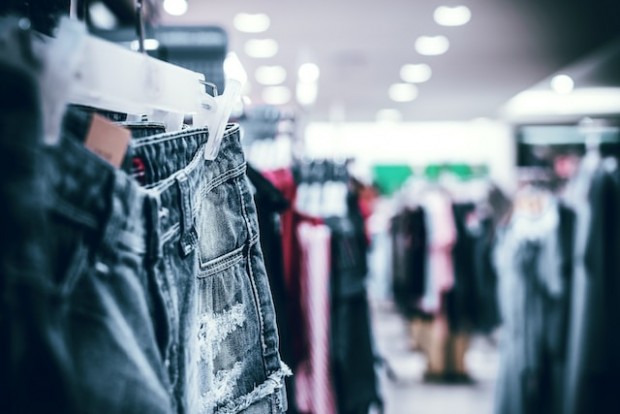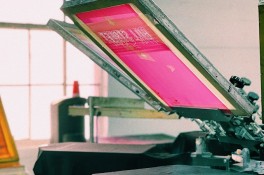
Shein is a fast-fashion brand making waves with its budget-friendly "Shein hauls" that influencers showcase on Social Media platforms. With a staggering 2020 revenue of nearly $10 billion and an estimated valuation of around $100 billion, Shein is on track to become the world's third most valuable startup. Despite its popularity for offering items under $15 and record profits, questions arise about the sustainability of a company thriving in fast fashion.
Items priced below $15 have made Shein the most talked-about brand on TikTok and YouTube and a globally visited apparel site. The ultra-low prices make it a consumer's dream, allowing them to build a wardrobe for less than the cost of takeout. It's also a dream for the company to record profits in the first half of 2023, according to WWD.

Shein Unmasked
While Shein is a convenient fashion destination, it has faced scrutiny for ethical and environmental concerns and questionable employee policies. A documentary, "Untold: Inside The Shein Machine," released in October, specifically delves into the latter. Journalist Iman Amrani hosts the documentary, revealing the human toll of Shein's business model by sending an undercover worker into two supply factories in Guangzhou, U.K., finding shocking discoveries.
Extended Working Hours
Under Chinese labor laws, employees are restricted to a 40-hour workweek. However, Shein workers in both factories endured 18-hour workdays, starting at 8 a.m. and ending in the early morning hours, only granted one day off per month, stating, "There's no such thing as Sundays here." The undercover reporter emphasized, "The factory has a very inhumane system."
READ ALSO: 5 Negative Impact of Extended Work Hours on People and Companies According to Research
Unjust Wages
Workers receive low wages, as seen in one factory where they earn a base salary of 4,000 yuan (about £492) monthly for producing 500 clothing pieces daily. This translates to a compensation of two cents for each clothing item manufactured, and will have a penalty of two-thirds of their daily wage if mistakes occur. Channel 4 noted that women washed their hair during lunch breaks in specific factories because they had no time to do so after their 18-hour workdays.
Environmental Concern
Shein has also faced criticism for having harmful chemicals like lead, PFAS, and phthalates in their clothing, as revealed in a Marketplace investigation last year.
Plagiarism from Designers
The brand has been condemned for plagiarizing designs from independent designers without proper credit or permission and for their questionable customer data handling.
"Need Help" Controversy
In June 2022, viral videos on social media alleged that Shein employees were hiding messages in clothes, with one tag supposedly containing a plea for help. Shein responded on TikTok, explaining it as a misunderstanding and highlighting a strict code of conduct against forced labor for suppliers. The company clarified that the "need your help" message aimed to remind customers to use fabric softener. However, some commenters remain skeptical, requesting videos showing working conditions rather than just a response video.
Shein's Response
According to Shein's 2021 Sustainability and Social Impact Report, 66% of its supplier factories and warehouses have a "mediocre" performance, indicating 1-3 significant risks needing corrective action. Another 12% fall into the ZTV category, signifying significant violations requiring immediate attention, with top issues including fire safety, working hours, and recruitment compliance.
While Shein expresses a commitment to ensuring compliance throughout its supply chain in the 2021 report, it lacks detailed information on wages and rights for factory employees. Instead, Shein provides general statements about maintaining a "safe, fair, and happy work environment" without offering specific details.
Sustainability
According to the sustainability report, Shein plans to release baseline greenhouse gas emission calculations publicly and is setting goals for increased use of renewable energy in its supply chain. While expressing a commitment to lower emissions and waste, the report lacks specifics on Shein's strategies. However, the brand is gradually transitioning to more sustainable materials, including recycled polyester and packaging.
Shein plans to announce a zero-waste goal by the end of 2022 and is gradually participating in a more circular economy by donating clothes and shoes to organizations. However, the fast fashion industry, ranked as the second most polluting industry globally, including Shein, contributes significantly to environmental pollution, responsible for 20% of wastewater and 10% of carbon emissions. The massive water and energy consumption producing millions of pieces annually poses sustainability challenges for Shein.
RELATED ARTICLE: Industrial Companies Take Bold Steps on Labor Issues, Extending Onsite Childcare to Ease "Tough Choices" for Workers
© 2017 Jobs & Hire All rights reserved. Do not reproduce without permission.




